the no grain diet
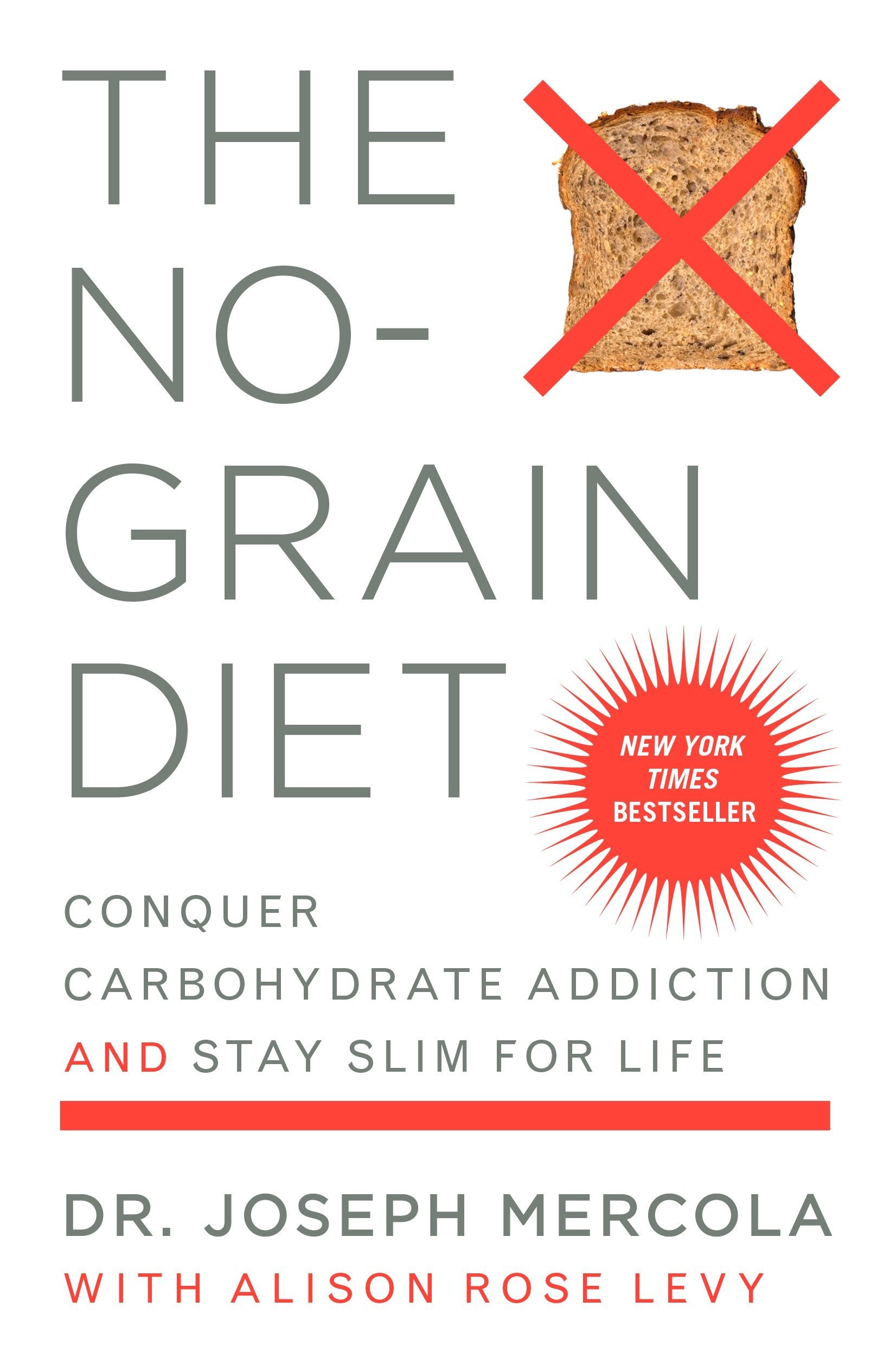 The No-Grain Diet: Conquer Carbohydrate Addiction and Stay Slim for Life: Joseph Mercola, Alison Rose Levy: 9780452285088: Amazon.com: Books
The No-Grain Diet: Conquer Carbohydrate Addiction and Stay Slim for Life: Joseph Mercola, Alison Rose Levy: 9780452285088: Amazon.com: BooksNutritionIs a grain-free diet healthy? All You Need To Know Fats are a basic element in the most traditional diets, but a growing number of people are cutting this food group. Some do so because of allergies or intolerance, while others opt for a cereal-free diet in an attempt to lose weight or improve their health. This way of eating is intended to offer several health benefits, from the best digestion to the reduction of inflammation and blood sugar levels. However, it may also have drawbacks and may be inadequate for some. This article critically examines a grain-free diet, including its benefits and potential drawbacks. A grain-free diet eliminates all grains, as well as foods derived from them. This includes gluten-free grains such as wheat, spelt, barley, rye and triticale, as well as others that are not glutes such as dry corn, millet, rice, sorghum and oats. In addition, unlike fresh corn, which is considered a , dry corn is considered a grain. Therefore, corn flour foods are also avoided. In addition, some people may choose to exclude the ingredients derived from grains, such as corn syrup or high fructose. However, this is not a strict requirement of such a diet. Abstract A grain-free diet eliminates all grains, including wheat, spelt, barley, rye, dry corn, millet, rice and oats, and sometimes even the ingredients, derived from them. A grain-free diet eliminates all grains, including wheat, spelt, barley, rye, dry corn, millet, rice and oats, and sometimes even the ingredients, derived from them. To follow a grain-free diet, it is necessary to exclude all grains, as well as foods derived from grain, from your diet. This includes bread, pasta, muesli, oats, breakfast cereals, cakes and cookies. That said, most grain-free diets allow small amounts of pseudocereals, such as quinoa, amaranth and sarna wheat. pseudocereals can be prepared and eaten similarly to grains, but are not technically considered grains. A grain-free diet can be natural, but this is not a requirement. Those who wish to include more carbohydrates can get them from fruit, vegetables and spicy vegetables, such as potatoes, pumpkins and fresh corn. There are no restrictions on non-grain-based foods. Therefore, it may include both meat, fish, eggs, nuts, seeds, sugar, fats or dairy as you wish, although diet advocates without cereals tend to discourage over-processed food consumption. Abstract Fat-free diets exclude all grains and grain products, but allow small amounts of pseudocereals. They may include both fruits, vegetables, meat, eggs, dairy, legumes, nuts, seeds, sugar and fat as you wish. Grain-free diets exclude all grains and products derived from grain, but allow small amounts of pseudocereals. They may include both fruits, vegetables, meat, eggs, dairy, legumes, nuts, seeds, sugar and fat as you wish. A grain-free diet can offer several health benefits. It can help treat certain health conditions A grain-free diet is most commonly followed by those with certain autoimmune diseases, and several studies support their use in these cases. For example, it is an autoimmune disorder that affects about 1% of the Western population. It causes your body to be equated with gluten, a protein in wheat, as a threat, by sending your immune system to overdrive (). This can lead to intestinal inflammation, which in turn can cause severe nutrient deficiencies and other digestive problems. People with celiac disease should exclude all grains containing gluten from their diet (, ).Similarly, some people are allergic to wheat and should avoid all foods that contain it. Others may be gluten intolerant or other grain compounds despite not having celiac disease or wheat allergy. () People with symptoms such as stomach pain, swelling, constipation, diarrhea, eczema, headaches or fatigue when eating grains and may benefit from excluding them from their diet (, , , ). Finally, in a 6-week study in people with intestinal inflammatory disease (IBD), after a grain-free diet improved symptoms in 73% of participants (). It can reduce inflammationInfections can contribute to inflammation, which is believed to be the root cause of many chronic diseases. Some test-tube, animal and human studies suggest a link between daily wheat intake or processed grains and (, , ).However, not all studies agree (). Lack of consensus can be explained by the type of grain investigated. For example, while refined grains can increase inflammation, whole grains seem to have very little effect on inflammation, and in some cases, they can even lower it (, , , , ).In addition, cutting grains can cause some people to naturally increase the amount or variety of fruits and vegetables they eat, both can help reduce inflammation (, , ). However, it is worth noting that it can offer its own anti-inflammatory benefits. Unless you have celiac disease, wheat allergy or gluten intolerance, you probably don't need to completely cut the grains to successfully fight inflammation (). It can increase weight loss A grain-free diet can promote, probably because it is naturally devoid of processed grains found in foods rich in calories, poor in nutrients such as white bread, white pasta, pizza, donuts, cookies and other baked products. In addition, cutting a whole group of foods out of your diet can reduce your daily calorie consumption, creating the calorie shortfall needed to lose weight. However, research clearly shows that, while you create a calorie deficit, you will lose weight regardless of whether your diet contains grains. In fact, the evidence suggests that eating whole grains can promote weight loss and (, , , ). Therefore, cutting all grains of your diet is not a requirement for weight loss. You can lower blood sugar levels Grains are naturally rich in carbohydrates. Therefore, grain-rich diets can cause problems for people who have a difficult time to deal with large, such as those who have diabetes or metabolic syndrome. The refined grains, such as those found in white bread, white pasta and many other processed foods, are particularly problematic, as they are devoid of fiber. This leads them to be digested very quickly, usually causing a spike in blood sugar levels shortly after a meal (, ).That said, whole grains rich in fiber can help. Therefore, cutting all grains is not the only way to reduce blood sugar levels (, , ). A cereal-free diet can also offer other health benefits: Despite promising preliminary results, more studies are needed to confirm these effects. It is also worth noting that most of these studies only looked at the effect of the grains containing gluten. There is no evidence to suggest that it is necessary to exclude all grains from your diet to achieve these benefits. Abstract A grain-free diet can reduce inflammation, weight loss of aid and improve digestion and blood sugar levels. It can also promote mental health and relieve pain in people with fibromyalgia or endometriosis, although more research is needed. A grain-free diet can reduce inflammation, weight loss of aid and improve digestion and blood sugar levels. It can also promote mental health and relieve pain in people with fibromyalgia or endometriosis, although more research is needed. A grain-free diet can also come with certain disadvantages. It can increase your risk of constipation A diet that is devoid of grains, in particular whole grains rich in fiber, can limit your fiber consumption. Unprocessed grains are a particularly good source of insoluble fiber. This type of fiber adds bulk to your feces, helping foods move through your intestine more easily and reducing your risk of (). If you follow a diet without cereals, try to increase your consumption of fruits, vegetables, legumes, nuts and seeds to reduce this risk (). It can limit nutrient intake The whole grains are a good source of nutrients, especially fiber, vitamins B, iron, magnesium, phosphorus, manganese and selenium (, , ).On the other hand, processed grains, whose bran and germ have been eliminated, lack most of their fiber, vitamins, minerals and other beneficial plant compounds (). Studies show that unnecessarily after a grain-free diet can increase your risk of , especially in B vitamins, iron and trace minerals (). You may be able to prevent this to a certain degree by increasing your intake of pseudocereals such as quinoa, amaranth and sarna wheat, as these tend to contain many of the same nutrients as whole grains (, , ).In addition, increase your intake of other foods such as fruits, vegetables, nuts, seeds, legumes, meat, fish and grains, can help to compensate any nutrients. It may be unnecessarily restrictive Although the research supports the benefits of excluding specific graps from diets of certain people, there is no evidence of the benefits of excluding all diet algarines. In addition, most of the benefits associated with a cereal-free diet can be achieved in ways that do not require cutting a whole food group. In addition, excluding all grains from your diet can reduce the variety and make your diet unnecessaryly restrictive, both of which can make this way of eating less sustainable in the long term. In addition, anecdotely demonizing grains under the guise of health can serve to promote extreme fixation in healthy eating, which is common in people with ortho-exic diets ().summary Fat-free diets can limit nutrient intake, increase the risk of constipation and be difficult to sustain in the long term. Anecdotely demonizing grains for health reasons may also supposedly promote orthoorexic eating behaviors. Fat-free diets can limit nutrient intake, increase the risk of constipation and be difficult to sustain in the long term. Anecdotely demonizing grains for health reasons may also supposedly promote orthoorexic eating behaviors. The following categories of foods can be included in a cereal-free diet: You can also choose to include marinas and salad dressings such as added fats, as well as sweeteners, such as sugar, maple syrup or honey. However, it is encouraged to focus on the processed full and minimum foods. Abstract A grain-free diet allows most foods, as long as they are devoid of grains. This includes fruits, vegetables, legumes, meat, fish, seafood, eggs, dairy, pseudocereals, nuts, seeds and flours not based on grain. A grain-free diet allows most foods, as long as they are devoid of grains. This includes fruits, vegetables, legumes, meat, fish, seafood, eggs, dairy, pseudocereals, nuts, seeds and flours not based on grain. Fat-free diets generally exclude the following categories of food: You may also want to avoid alcoholic grain-based beverages, such as beer, gin, whisky, sake and food containing grain-based ingredients such as rice syrup or high fructose corn syrup. Abstract A grain-free diet excludes all foods that contain grains. It may also limit the intake of alcoholic beverages derived from grains or foods containing grain-derived ingredients. A grain-free diet excludes all foods that contain grains. It may also limit the intake of alcoholic beverages derived from grains or foods containing grain-derived ingredients. Here is a typical 3-day menu suitable for a grain-free diet. Day 1 Day 2Día 3CommentaryA well-balanced grain diet can include a variety of fruits, vegetables, nuts, seeds and legumes, as well as some meats, fish, seafood, eggs and dairy. A well-balanced grain-free diet may include a variety of fruits, vegetables, nuts, seeds and legumes, as well as some meats, fish, seafood, eggs and dairy. Here are some simple but nutritious snack ideas without grains to row between meals: Summary There are many ways to include snacks in a grain-free diet. Previous combinations can be used to help dizzy between meals. There are many ways to include snacks in a grain-free diet. Previous combinations can be used to help dizzy between meals. While limiting certain grains may benefit some health conditions, cutting all grains is unnecessary for most people and may even be harmful to their health. In addition, the expected benefits of a cereal-free diet can often be achieved in ways that do not require cutting a whole group of food from your diet. Therefore, it is worth considering whether this diet offers you more pros than cons before giving you a test. Read this next series of words

The No-Grain Diet: Conquer Carbohydrate Addiction and Stay Slim for the Rest of Your Life by Joseph Mercola

Nonfiction Book Review: The No-Grain Diet: Conquer Carbohydrate Addiction and Stay Slim for the Rest of Your Life by Joseph Mercola, Author, Alison Rose Levy, Author Dutton Books $24.95 (311p) ISBN 978-0-525-94733-2

The No-Grain Diet by Dr Joseph Mercola - Books - Hachette Australia

No-Grain Diet: Is It Healthy?
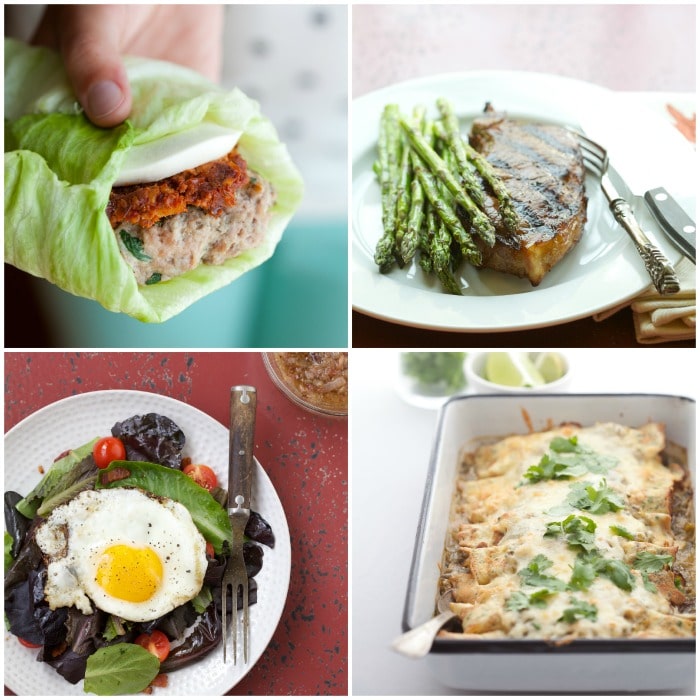
10 Tips to Ease Into a Grain-Free Lifestyle - Deliciously Organic

The No-Grain Diet: Conquer Carbohydrate Addiction and Stay Slim for the Rest of Your Life by Joseph Mercola

The No-Grain Diet eBook: Joseph Mercola, Dr: Amazon.in: Kindle Store

Fat for Fuel and The No-Grain Diet 2 Books Collection Set By Dr Joseph Mercola 9789123589937 | eBay

no wheat diet, wheat belly diet ▻♥◅ What Foods Are Gluten free ? Helpful list of gluten free f... | Gluten free food list, Free food, Gluten free diet
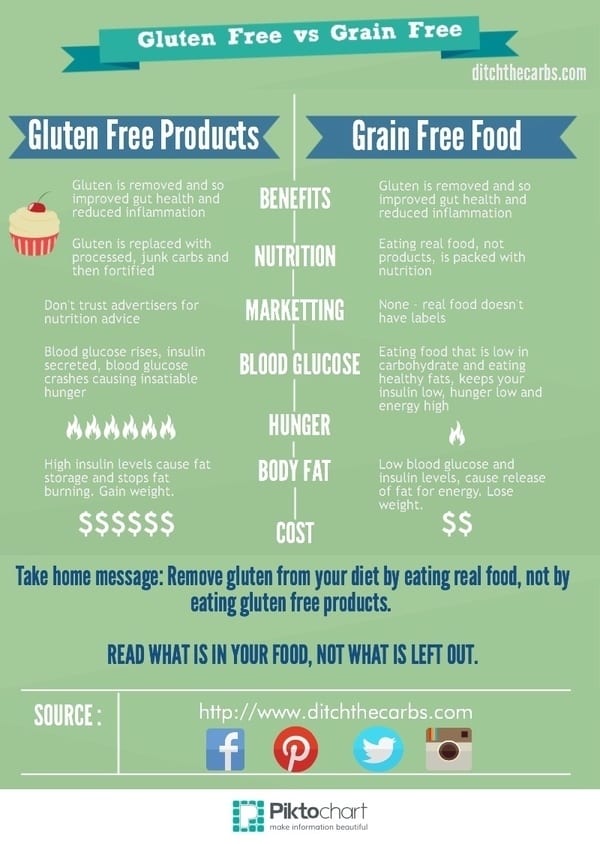
What is a grain-free diet? — FREE printable A-Z List Of Grains To Avoid
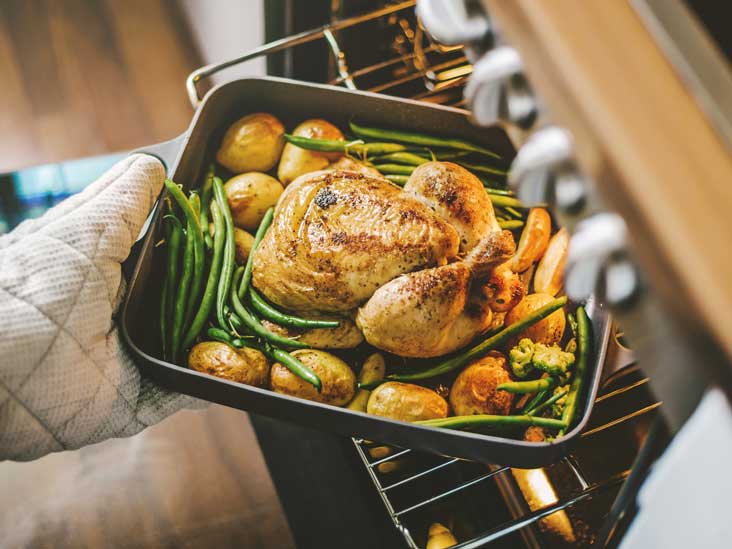
Grain-Free Diet: Benefits, Food Lists, and Meal Plan
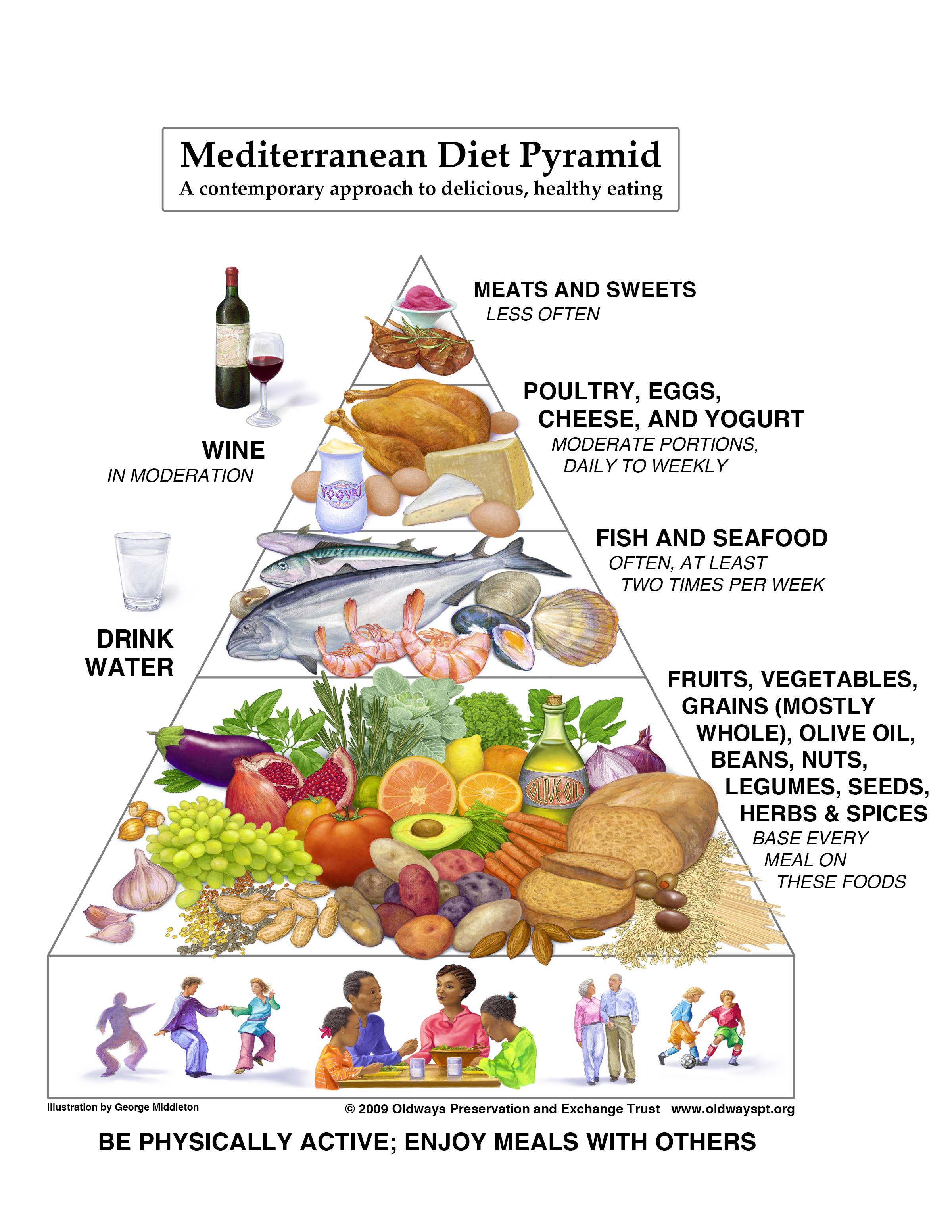
Whole Grains Featured in the Best, Easiest, and Healthiest Diet | The Whole Grains Council

Grain-Free Diet: The Foods You Can and Can't Eat | Eat This Not That

The No-Grain Diet | STACK
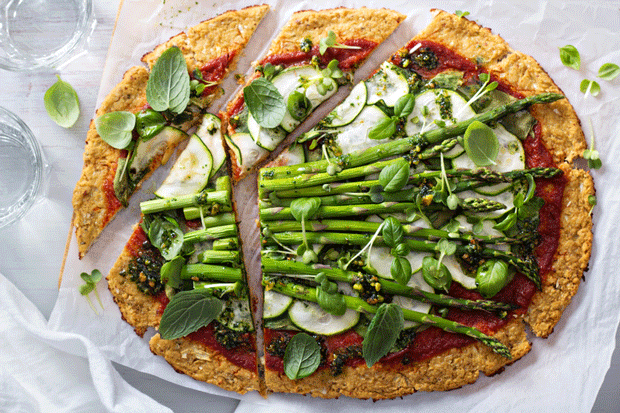
The no-grain diet: A guide to wheat-free pizza bases - thisNZlife

Big Food Experient Pt.2: A Month With No Grains | Bangkok Personal Trainer, Health, Fitness, Diet, Bootcamp, Football and Sport

No Wheat, No Dairy, No Problem - Go Dairy Free
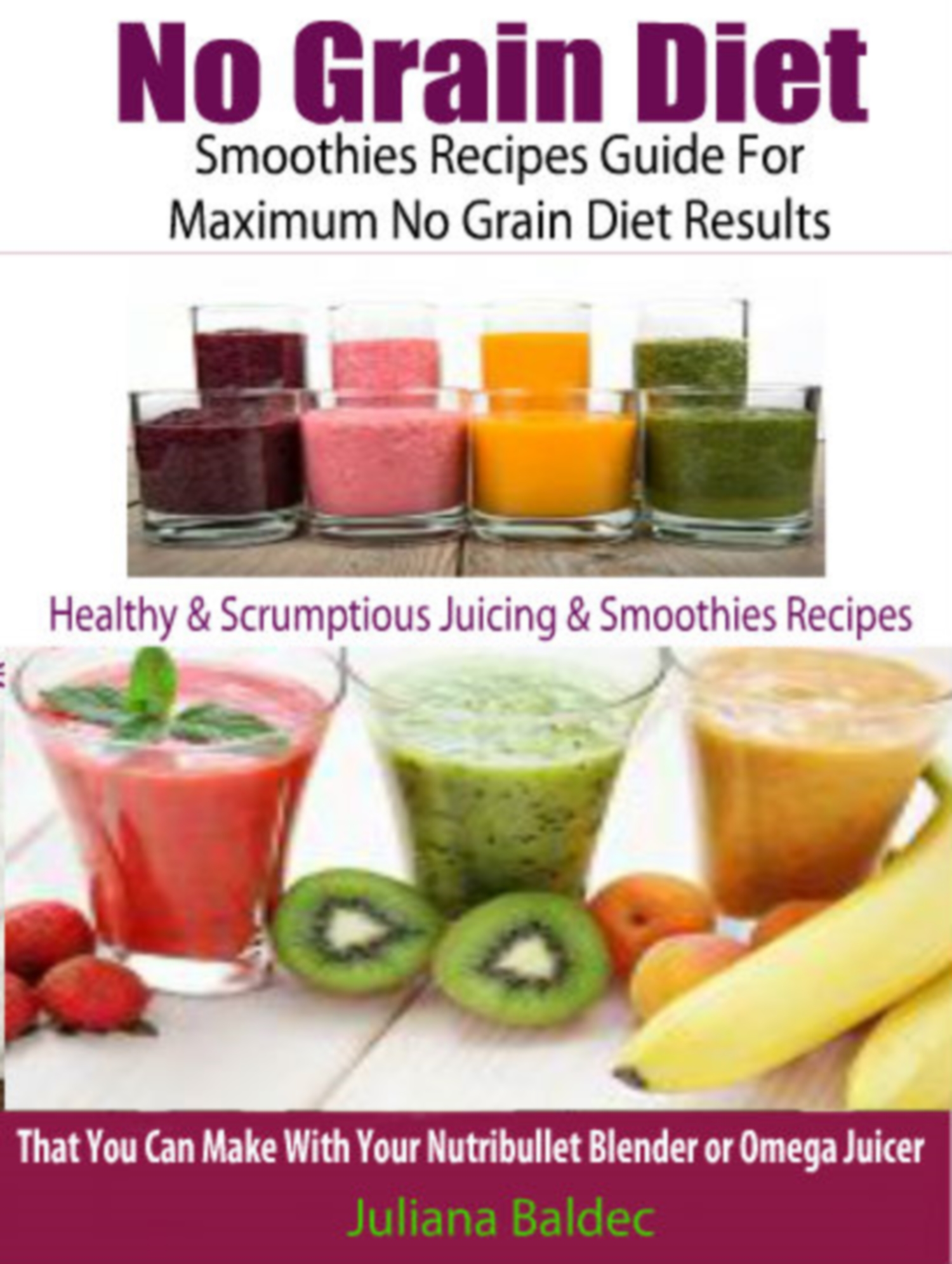
Smashwords – No Grain Diet: Smoothies Recipes Guide For Maximum No Grain Diet Results: Healthy & Scrumptious Juicing & Smoothie Recipes That You Can Make With Your Nutribullet Blender Or Omega Juicer –
I Stopped Eating Grains for a Month—Here's What Happened

The No-Grain Diet : Conquer Carbohydrate Addiction and Stay Slim for the Rest of | eBay

Dr Mercola The No - Grain Diet Book

Wheat belly 30-minute, wheat belly, no-grain diet, grain brain 4 books collection set: Dr William Davis, Dr Joseph Mercola, David Perlmutter: 9789123678037: Amazon.com: Books

100% Paleo aproved: No grains, no dairy, no legumes, no sugar, no vegetable oils and no preservatives.… | Week meal plan, Meals for the week, Meal planning template

The No-Grain Diet: Conquer Carbohydrate Addiction and Stay Slim for the Rest of Your Life by Joseph Mercola

the no-grain diet, grain brain, hidden healing powers of super & whole foods and fat

No Grain, No Pain | Book by Peter Osborne | Official Publisher Page | Simon & Schuster
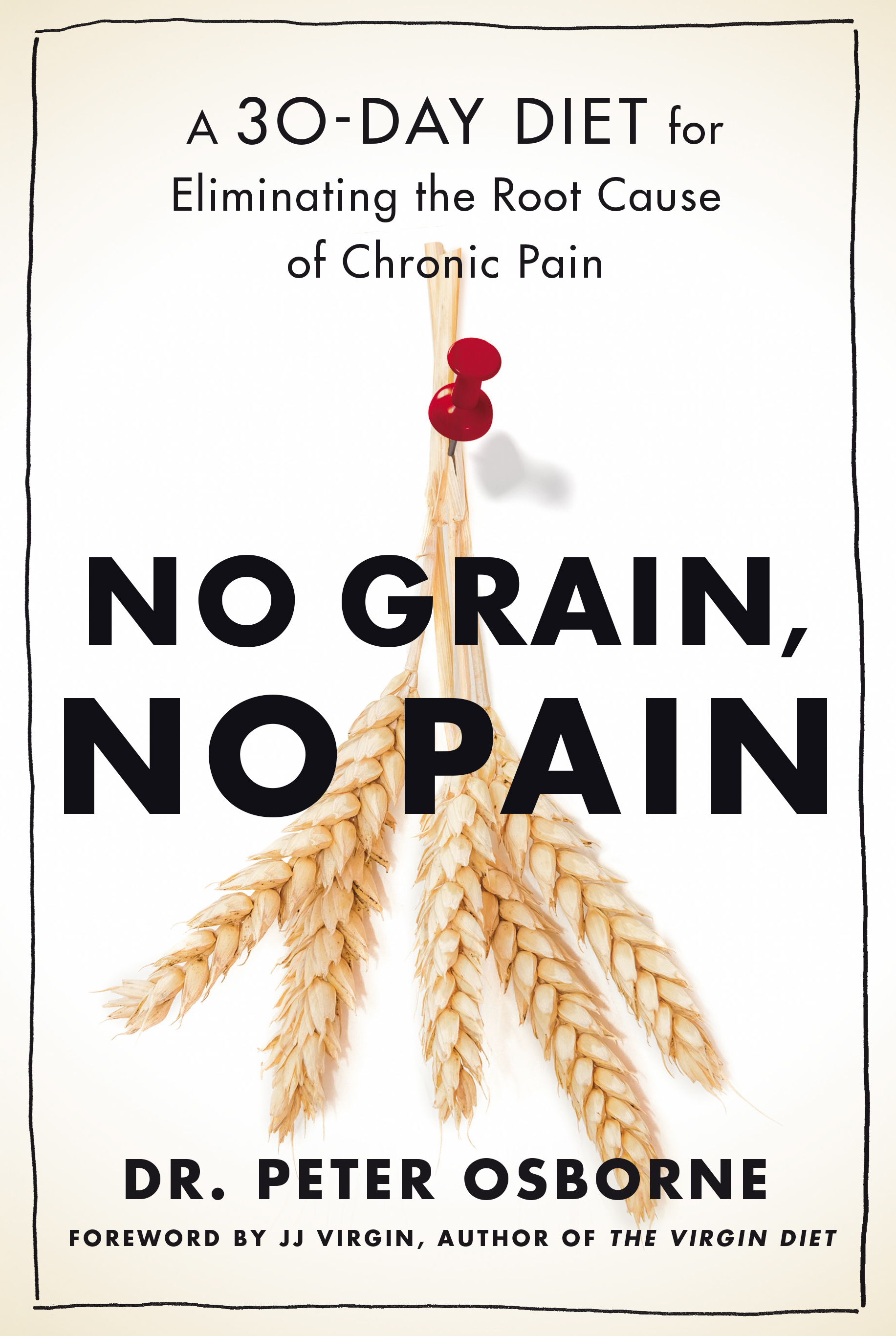
No Grain, No Pain by Peter Osborne | Black Inc.
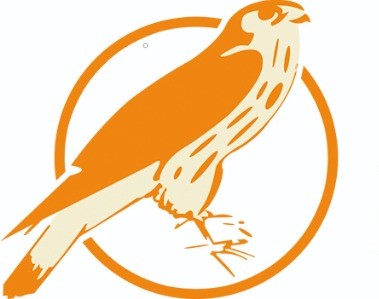
The No-Grain Diet - Nature-Reveals.com

Jual THE NO-GRAIN DIET (BY JOSEPH MERCOLA) - Jakarta Pusat - Win Ebooks | Tokopedia

The No Grain Diet Book Bestseller By Dr Joseph Mercola For Sale in Navan, Meath from martacbr
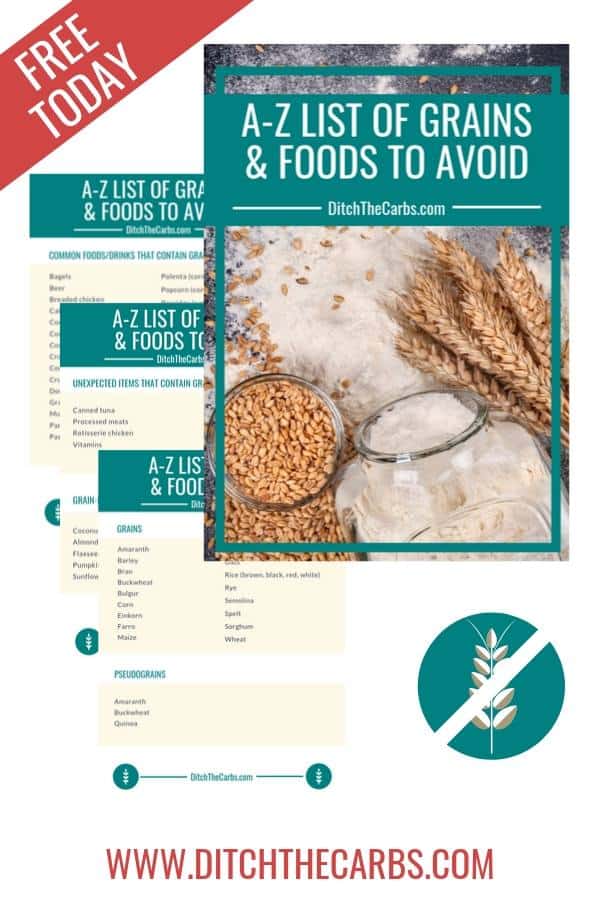
What is a grain-free diet? — FREE printable A-Z List Of Grains To Avoid

Sirtfood Diet and The No-Grain Diet 2 Books Collection Set BRAND New Paperback 9781473626782 | eBay

No-Wheat Diet: Everything You Need to Know | Openfit
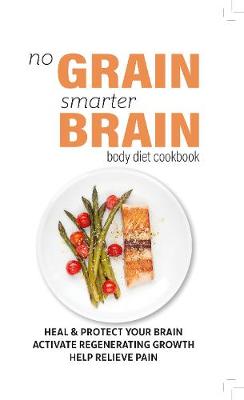
No Grain, Smarter Brain Body Diet Cookbook | Waterstones

The No Grain Diet by Dr. Joseph Mercola: Pure Complexions
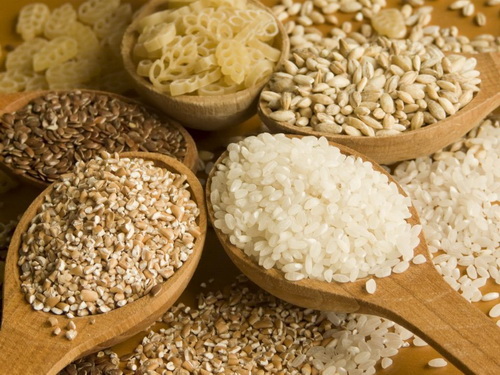
No Grain Diet Plan – Attain Slim And Healthy Body - Healthy Celeb
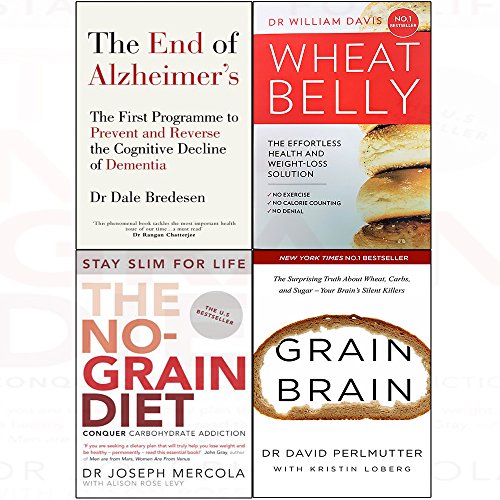
9789123678099: End of alzheimer's, wheat belly, no-grain diet, grain brain 4 books collection set - AbeBooks - Dr Dale Bredesen; Dr William Davis; Dr Joseph Mercola: 9123678097

What's the Keto and Paleo Diets & What are the Differences?

NSNG Grocery List: Getting started with no sugar no grain - Rambling Rach
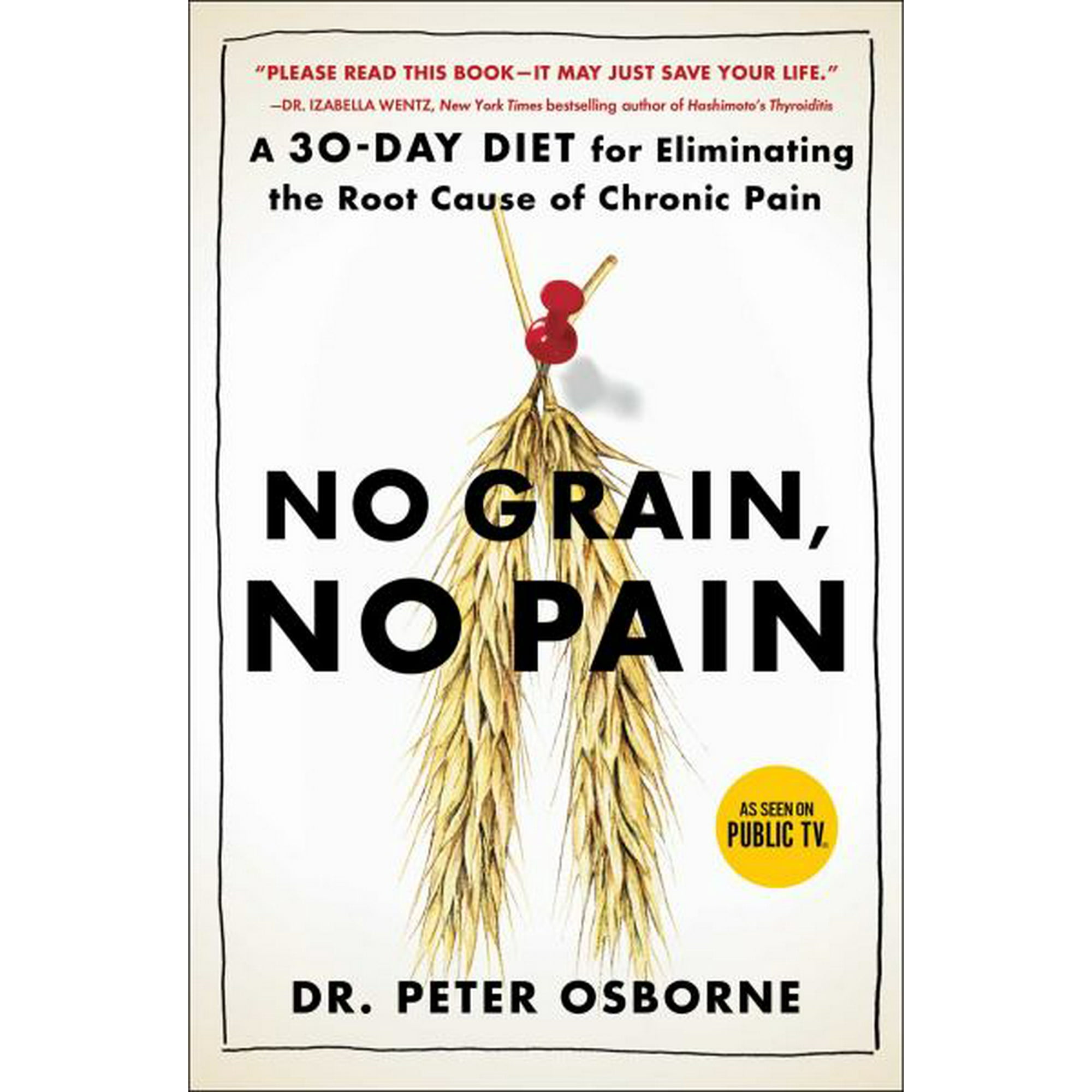
No Grain, No Pain: A 30-Day Diet for Eliminating the Root Cause of Chronic Pain | Walmart Canada
Posting Komentar untuk "the no grain diet"